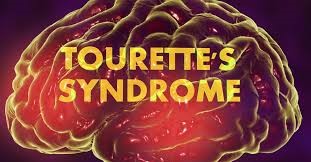What Is Tourette's Syndrome?
Tourette's syndrome is a problem with the nervous system that causes people to make sudden movements or sounds, called tics, that they cannot control. For example, someone with Tourette's might blink or clear their throat repeatedly. Some people may blurt out words they do not intend to say.
Once in the 1980s I lived
and worked in Buffalo, NY. One Saturday
afternoon we went to a movie. Into the
theatre came a group of young people. As they got settled one of the young men
starting yelling and disrupting the audience. For me it was unbearable. I went over to this group of young people and
asked then to be quiet. Within a few
minutes they all got up and left. An
usher explained to me that the disruptive young man was suffering from
Tourette’s Syndrome, and he simply could not help himself. To this very day I am deeply ashamed.
Treatments can control tics,
but some people do not need any unless their symptoms really bother them.
About 100,000 Americans have
full-blown Tourette's syndrome, but more people have a milder form of the
disease. It often starts in childhood, and more boys than girls get it.
Symptoms often get better as children grow up. For some people, they go away
completely.
Causes
Tourette's has been linked
to distinct parts of the brain, including an area called the basal ganglia,
which helps control body movements. Differences there may affect nerve cells
and the chemicals that carry messages between them. Researchers think that
trouble in this brain network may play a role in Tourette's.
Doctors do not know exactly
what causes these problems in the brain, but genes probably play a role. It is
likely that there is more than one cause.
People who have family
members with Tourette's are more likely to get it themselves. But people in the
same family may have different symptoms.
Symptoms
The main symptom is tics.
Some are so mild they are not even noticeable. Others happen often and are
obvious. Stress, excitement, or being sick or tired can make them worse. The
more severe ones can be embarrassing and affect your social life or work.
There are two types of tics:
Motor tics involve movement.
They include:
Arm or head jerking
Blinking
Making a face
Mouth twitching
Shoulder shrugging
Vocal tics include:
Barking or yelping
Clearing your throat
Coughing
Grunting
Repeating what someone else
says
Shouting
Sniffing
Swearing
Tics can be simple or
complex. A simple tic affects one or just a few parts of the body, like
blinking the eyes or making a face.
A complex one involves many
parts of the body or saying words. Jumping and swearing are examples.
This is a difficult disease
for the individual, the whole family, and the entire community in which the
patient resides. I little bit of
compassion goes a long way.
Jan Ricks Jennings, MHA,
LFACHE
Senior Consultant
Senior Management Resources, LLC
JanJenningsBlog.Blogspot.com
412.9130636 Cell
724.733.0509 Office
October 11, 2021

No comments:
Post a Comment